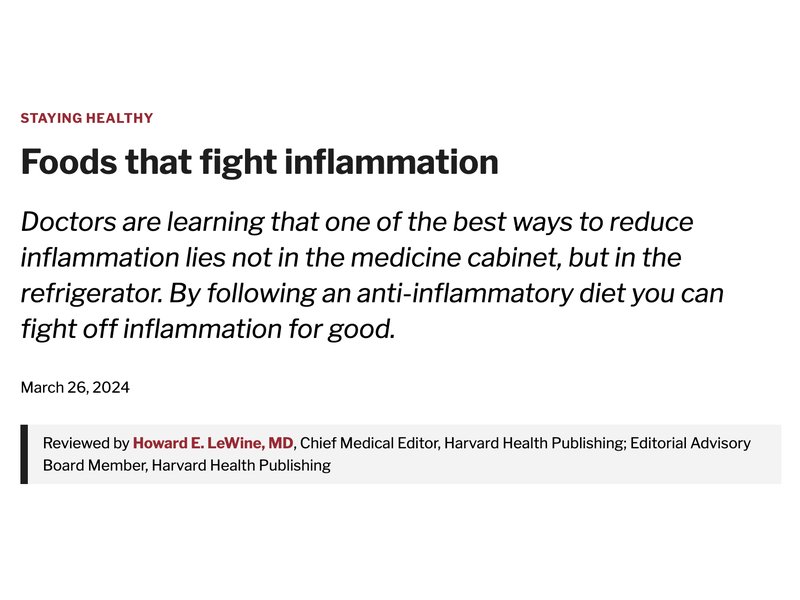
Inflammation is a hot topic in health circles, and for good reason. Chronic inflammation has been linked to numerous major diseases, including cancer, heart disease, diabetes, arthritis, depression, and Alzheimer's. But did you know that one of the most powerful tools to combat inflammation might be sitting in your refrigerator? Here are four key insights about fighting inflammation with food, based on recent findings from Harvard Health Publishing.
1. Your Diet Can Be a Powerful Anti-Inflammatory Tool
According to Dr. Frank Hu, professor of nutrition and epidemiology at the Harvard School of Public Health, many experimental studies have shown that components of foods or beverages can have anti-inflammatory effects. By choosing the right anti-inflammatory foods, you may be able to reduce your risk of illness.
2. Some Foods Promote Inflammation
It's important to be aware of foods that can cause inflammation. These include:
- Refined carbohydrates (white bread, pastries)
- Fried foods
- Sugar-sweetened beverages
- Red and processed meats
- Margarine, shortening, and lard
3. Anti-Inflammatory Foods to Include in Your Diet
On the flip side, an anti-inflammatory diet should include:
- Tomatoes
- Olive oil
- Green leafy vegetables (spinach, kale, collards)
- Nuts (almonds, walnuts)
- Fatty fish (salmon, mackerel, tuna, sardines)
- Fruits (strawberries, blueberries, cherries, oranges)
4. Consider the Mediterranean Diet
If you're looking for an eating plan that closely follows the tenets of anti-inflammatory eating, consider the Mediterranean diet. It's high in fruits, vegetables, nuts, whole grains, fish, and healthy oils.
Remember, a healthier diet isn't just about reducing inflammation. As Dr. Hu notes, "A healthy diet is beneficial not only for reducing the risk of chronic diseases, but also for improving mood and overall quality of life."
By making informed choices about what you eat, you can take a proactive step towards better health and potentially reduce your risk of inflammation-related diseases.
Please read the article at Harvard.edu -- Health.
This article is brought to you by The Wellness Corner. For more wellness tips and tools, visit our website.
